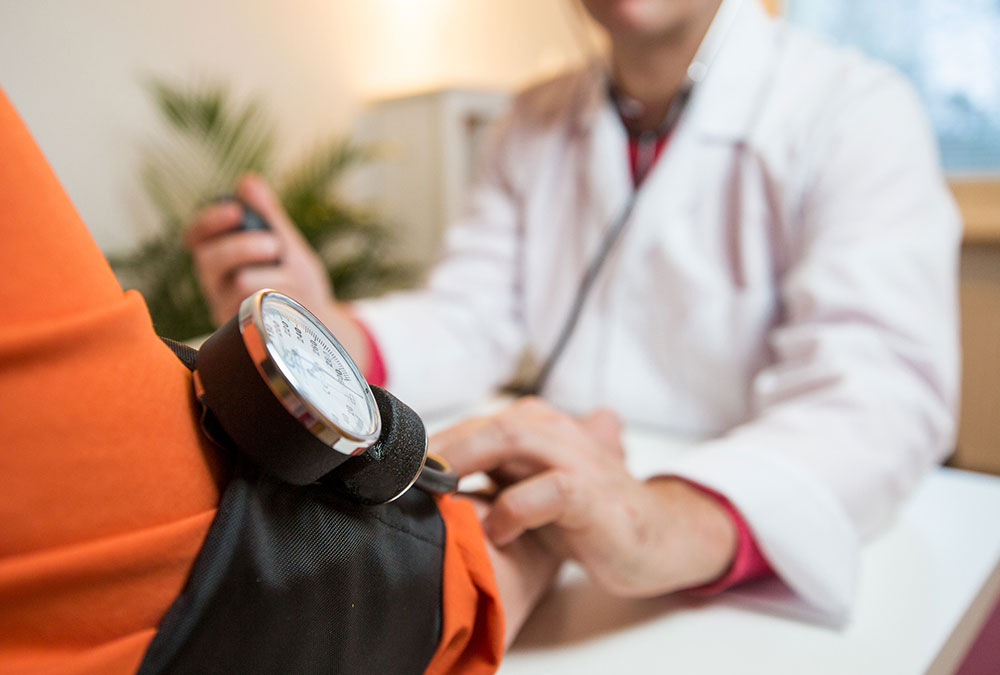Do I Really Need to Detox?
Have you recognized that you may have a substance use disorder (SUD), and have begun wondering about the best way to start your recovery? If so, you probably have many questions and concerns, including, where is the best place to start? Do I need to detox? Can I go cold-turkey? What does ‘detox’ even mean?
There are many questions along the road to recovery, and finding answers can be overwhelming, especially as you continue to deal with the effects of your substance use. The overwhelming nature of beginning to find treatment may be a reason only one in ten Americans struggling with SUD eventually seek treatment—despite the fact that it has been shown to be effective.
Recovery is a process, and there is no shame in moving slow to be sure that you understand what you need to do to begin recovery and why. With that in mind, most people begin by considering detoxification. If you don’t know anything about the process, detox can seem scary—and for some, it isn’t necessary.
After learning more about detox, use our ‘Do I Need Detox?’ quiz to help you determine if detox is a vital step for you to take on your unique recovery journey.

What Is Detox?
You’ll hear the word ‘detox’ thrown around a lot in health-adjacent circles, covering a variety of things from fad diets to health cleanses. However, true drug and alcohol detox is a bit different and certainly not a passing fad. Generally speaking, drug and alcohol detoxification, or detox, is the process of getting your body clear of all drugs and alcohol. There are two basic ways to detox. The most widely known is “quitting cold turkey,” which means you’ll stop your substance use completely, all at once. Depending on the substance, stopping cold turkey on your own can be extremely dangerous to your health and may result in severe withdrawal symptoms. For that reason, the medically accepted way to detox is to either utilize a professional detox facility to detox quickly with the help of medications, or gradually taper use of the substance under the advice of a medical professional.The Dangers of Detoxing Without Medical Supervision
Although it is a necessary step to rid your body of the dangerous effects caused by drugs and alcohol, detox deprives your body of a substance you have become chemically dependent upon to function. Thus, it is crucial to detox with the help of experienced medical and drug treatment professionals. These withdrawal symptoms are serious, and without medical supervision, withdrawal can have some severe side effects, and could even be life threatening.
How Long Does Detox Last?
The detox process, much like substance use and SUD itself, is extremely personal. Studies have revealed that the average length of detox was a little over seven days. However, every person’s detox is different. Depending on the substance you are detoxing from and the severity of your addiction, detox can take anywhere from three days to two weeks Your detox is complete only when the substance is completely flushed from your system. Medical detox is most often considered a procedure separate from the treatment of substance use disorder. It has been shown that going through detox and then following up with continued treatment for your substance use disorder tends to give the best long-term results for prolonged health and sustainable recovery.Are There Medications to Ease Symptoms?
There are several medications that can be administered to help with the detoxification process, curb your cravings, alleviate withdrawal symptoms, and more. These medications all have different functions and side effects, and your doctor should be able to prescribe the one that makes the most sense for your individual situation.Benzodiazepines and Antidepressants
Benzodiazepines have been found to help with some side effects of withdrawal, such as the nervousness that comes with the withdrawals from stimulants. Unfortunately, long-term use of benzodiazepines can cause dependency on them. It is recommended that if benzodiazepines are used to help with withdrawal, you’ll want to transition to a nonbenzodiazepine like an antidepressant, to help prevent dependency.Opioid Antagonists
There are a few different antagonists like Naltrexone and Naloxone that help prevent the effects of using opioids. The way opioid antagonists work is by attaching to the nerve receptors in your brain that are affected by opioids. Instead of stimulating the receptor like the drugs would, antagonists attach to them and prevent this stimulation. This causes opioids to lose some of their effects on your body, which makes it a bit easier for you to detox.Methadone and Clonidine
Methadone and Clonidine are both drugs used to lessen the effects of withdrawal. Methadone is a narcotic and is primarily used to help with heroin withdrawal. It stays in the body for longer than other medications and helps the symptoms of withdrawal to subside and can lessen the inclination to use again. Clonidine is used to detox from several substances including opiates and even methadone. Clonidine works by decreasing the amount of adrenaline in your system, which helps subdue the effects of withdrawal. There are even more medications out there that can help with withdrawal symptoms and detoxification. Some medications can even help with rapid detoxing or overdoses. Only a licensed physician can properly prescribe medications to help with your detox and withdrawal symptoms.Someone I Know Needs Medical Detox – How Can I Help?

There are a few ways to help someone in need of medical detox. First, and foremost, they will need your support. As a friend or relative, you can provide the kind of emotional support that helps them make the decisions necessary to ease the start to recovery.
You can also help your loved one find a rehabilitation center that offers medical detox. This process will likely require some encouragement, as it is often difficult for people to realize they have a problem. However, the best thing you can do is to help them find the treatment they need without judgment. Detoxing and the recovery from substance use disorder can be very difficult to get through, and the support and understanding of family and friends can be a welcome comfort to the people struggling with substance use disorder.



